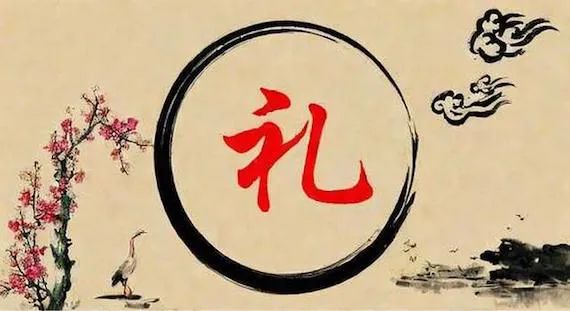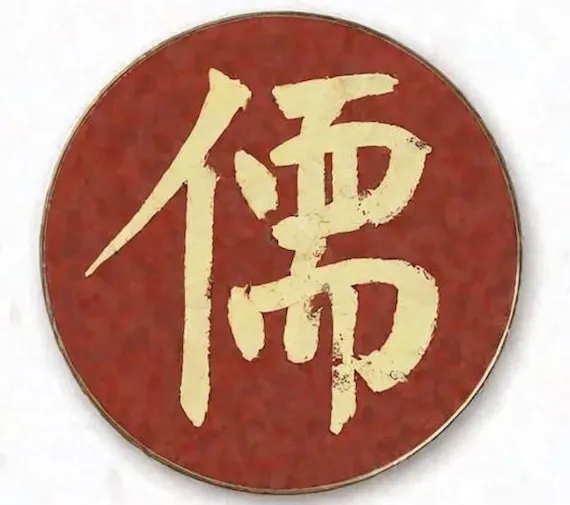Confucianism is one of the highly esteemed schools of traditional Chinese culture, and it emphasizes harmony, benevolence, propriety, justice, honesty, and shame in interpersonal relationships.
Confucianism is not a religion. Compared with religions, it attaches greater importance to the inheritance of thoughts and morality over religious rituals.
Thus, in the development of Confucianism, there is no symbolic sign.
However, as the Confucian school grew stronger, later scholars and followers tried to express the core values of Confucianism by choosing some symbolic Chinese characters and images.
These symbolic expressions allowed later Confucian scholars to convey and promote Confucianism in more specific ways. They also enabled a wider group to understand and accept Confucianism’s core values.
Symbols of Confucianism
In its original teachings and theories, Confucianism did not have a clear and official symbol. However, as time passed, later scholars and followers chose a few simple but meaningful Chinese characters and images to identify and represent Confucianism.
1. 仁 (Pinyin: Ren; English: Benevolence)

“仁” is the core concept of Confucianism.
Many followers of Confucianism chose to adopt the Chinese character “仁” as a Confucian symbol to express the importance of human relationships and morality.
It emphasizes the care and respect among people to realize personal value and social harmony.
2. 礼 (Pinyin: Li; English: Propriety)

“礼” (traditional Chinese: 禮) plays a vital role in Confucianism.
In the Confucian view, “礼” is essential for maintaining social harmony, stability, and justice. It prescribes people’s behaviors and attitudes on various occasions and in various relationships.
Therefore, some people have chosen the Chinese character “礼” as the symbol of Confucianism, reflecting the emphasis on social norms and rituals.
3. 儒 (Pinyin: Ru; English: Gentleness)

The symbol of “儒” encapsulates a profound aspiration- to cultivate individuals who embody the virtues of gentleness, modesty, and courtesy.
Confucian scholars mainly refer to those who advocate and study Confucianism. These people are supposed to be gentlemen.
Over time, the character “儒” has become synonymous with Confucianism, symbolizing the pursuit of learning, morality, and humanism.
4. Water
Confucianism regards “water” as a symbol of wisdom because it can flexibly adapt to various environments and show different forms.
At the same time, water is imbued with moral symbolism. Confucianism advocates that people should be like water, helping others, not competing with all things for superiority, and not seeking personal glory and gain.
In addition, the allusion of “Confucius observing water” is also recorded in historical materials. Confucius’s observation and understanding of water deepened the symbolic meaning of water in Confucian thought.
Therefore, some people in later generations regarded “water” as a unique symbol of Confucianism.
5. The Portrait of Confucius
Confucius is the founder of Confucianism, and his portrait is also used as a symbol of It.
Whenever people see a portrait of Confucius, they will think of his teachings, moral ethics, and wisdom.
Hence, his portrait becomes a guide, helping individuals effortlessly incorporate the principles of Confucianism into their daily lives.
Therefore, choosing the portrait of Confucius as the symbol of Confucianism shows respect for Confucian culture. It reminds every Confucian scholar to always adhere to Confucius’s teachings and transmit and promote the spirit of Confucianism.
Symbols of Religions
Every religion has its unique symbols.
These symbols are signs that decorate religious ceremonies and spiritual pillars of believers, providing them with a collective identity and spiritual support.
| Religion | Symbol |
| Christianity | Cross |
| Islam | Crescent and Star |
| Taoism | Tai Chi Diagram |
| Buddhism | Dharmachakra |
| Judaism | Shield of David |
In short, these symbols are deeply rooted in the cultural traditions and values of schools of thought and religions.
As the precious heritage of human civilization, they carry the wisdom and aspirations of humankind and bear witness to the evolution and development of human history.
It is crucial to foster respect and understanding for diverse religions and cultures, as this can effectively prevent misunderstandings and conflicts that often arise from ignorance or prejudice.
